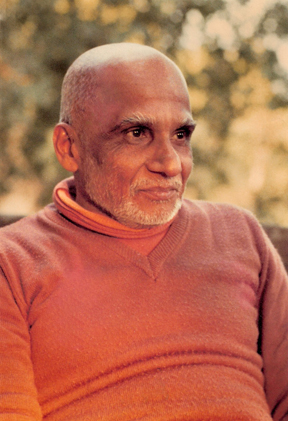
There are two kinds of perceptions: the general, acceptable, common to all, and the other, which is abnormal. The process of perception generally is, for instance, our looking at a tree and enjoying the beautiful nature in front, the sun, the moon and the stars, and anything in the world, as it is a general perception which has no particular connotation or meaning.
There is another kind of perception, which is abnormal. The previous one, the process of general perception and inference, is the subject of what is known as general psychology. The other thing is the subject of abnormal psychology.
A human being has a normal character and also an abnormal character simultaneously operating and creating the mischief of unhappiness wherever one goes.
When we see a tree in a large forest, we just see it, and there is no reaction produced in our mind by this perception. But suppose we see a fruit tree in our own garden. We have another feeling towards that tree, not similar to the casual perception of a tree that is in the wild forest. We do not say it is our tree when we perceive a tree in the forest.
The idea itself will not arise. But we feel, “It is in my garden, it is my property. I am vitally involved in this tree, and I would not like anyone to interfere with it.” Let somebody cut a tree in the forest; we are not bothered about it. But if somebody cuts or attempts to do this kind of thing with our tree in the garden, we will yell out. This is one example.
Emotional reaction, working simultaneously with the perception of an object, makes this perception abnormal.
Merely looking at a thing impersonally without any kind of emotional reaction, like a judge in a court looking at the clients on both sides with no emotion in his mind, is one thing.
As both these characteristics are operating in our mind, which one are we going to tackle – the general perception of the world as a whole or the abnormal difficulties that arise on account of emotional reactions?
In medical science, general diseases do not receive preference when there is an acute disease. Suppose a person has an ache in the body which requires treatment, but at the same time the person has a high temperature.
This second item, temperature, is an acute problem which has to be taken care of first, and the other difficulty of ache in the body is afterwards.
So our problem here is to see how we are suffering every moment of time. We have love and hatred, attraction and repulsion. The moment emotion ceases to agree with the convictions of reason, there is an internal conflict. No one, when perceiving a tree in one’s own garden, concludes that this is just one tree among many other trees in the forest.
Is there not a difference between my son and somebody else’s son? Let somebody else’s son walk about; what does it matter? If my son is wandering, I will call him because there is a vital connection of oneself with something outside.
Patanjali makes out those emotions of this kind arise on account of a basic ignorance of the true nature of things. It is called avidya. It is the recognition of a particular thing as existent and operative, independent of the real fact behind it: This particular object that is so recognized is just a pressure point, as it were, of the universal prakriti, and the prakriti, the whole material matrix that is in front of us, is not made of one object only. Prakriti does not produce only my object.
All the objects are manifestations of this all-pervading prakriti. The world is made up of interconnected forces.
Excerpted from the article ‘The Nature of the Individual’
Swami Krishnananda






